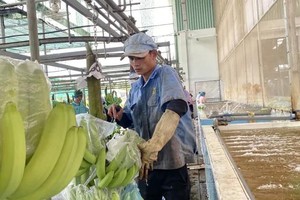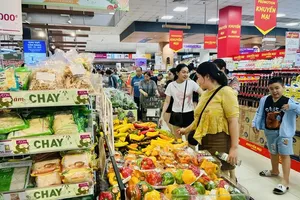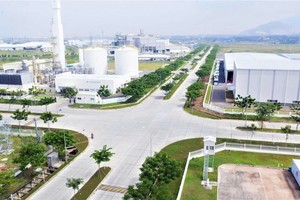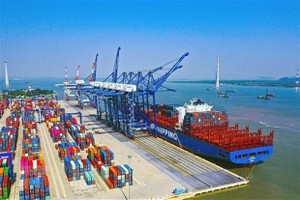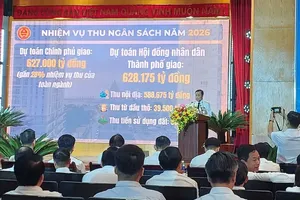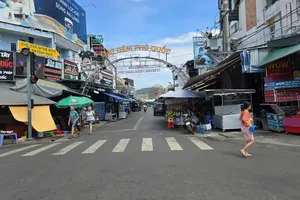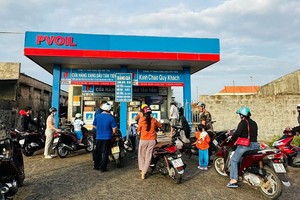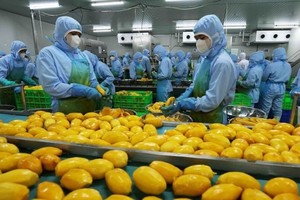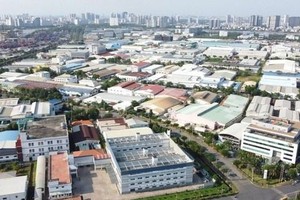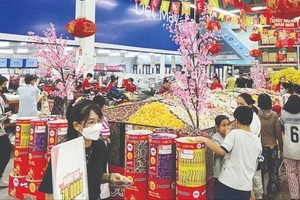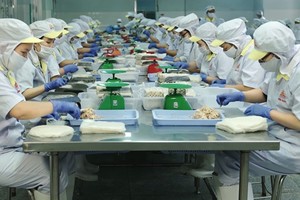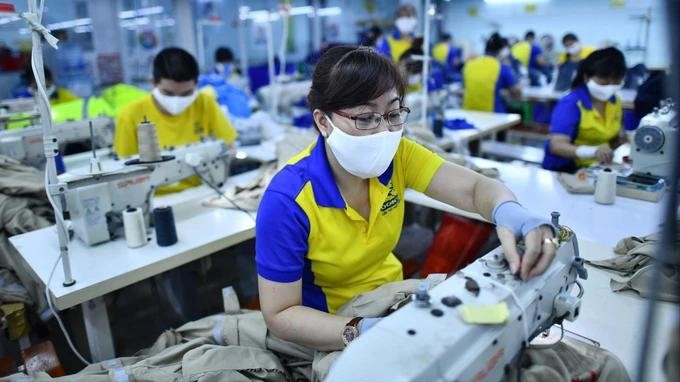
The twofold objective is to diminish emissions and augment the desirability of Vietnamese products in the US and EU markets.
A representative from the Ministry of Industry and Trade presented the topics during a seminar on sustainable trends and solutions within the footwear and textile sectors on October 28.
In its effort to help Vietnamese textile and footwear companies in advancing their green initiatives, the Ministry of Industry and Trade is planning to import eco-friendly technology and develop sustainable brands that align with international standards.
Head Nguyen Van Hoi of the Institute for Strategy and Policy Research on Industry and Trade noted that the textile and footwear industries in Vietnam have experienced significant growth over the past several decades, playing a crucial role in the country's export revenue. Nonetheless, both sectors are also significant contributors to environmental pollution.
He emphasized that reducing emissions and green transformation are essential requirements for Vietnamese enterprises not only to continue exporting but also to expand to demanding international markets such as the US and EU.
Vice President Phan Thi Thanh Xuan, concurrently serving as General Secretary of Lefaso, underscored the imperative of ecologizing the supply chain, particularly given the emergence of stringent regulations in major markets like the EU. These regulations, encompassing anti-deforestation, traceability, and eco-labeling directives, necessitate environmentally responsible production practices from the initial design phase to the selection of materials for Vietnamese leather and footwear enterprises.
She added that major global brands not only require environmentally friendly materials but also apply up to 10 design rules to reduce emissions from the idea stage to the final product. This requires the fashion and footwear industries to change their approach from design to production.
Ms. Xuan highlighted that giant companies, particularly those with foreign investment, are leading the way in making production chains more eco-friendly. This shift is largely supported by international certifications like LEED, which are well-regarded by customers around the globe and play a crucial role in helping businesses secure export orders.
Director Nguyen Van Hoi emphasized that businesses that navigate this challenge and shift towards green production will not only reduce costs in the long run but also boost their brand visibility among international clients. He noted that obtaining international certifications in sustainable production, like LEED, will significantly enhance a company's appeal to both partners and consumers.
Ms. Phan Thi Thanh Xuan agreed with Director Nguyen Van Hoi’s opinion saying that the shift towards green production is an opportunity for Vietnamese businesses to access a more transparent production supply chain. In particular, Vietnamese firms can take advantage of more than 16 free trade agreements (FTAs) which the Southeast Asian country has signed (FTA) to increase exports and participate more deeply in the global market.
To facilitate the greening initiative, national programs aimed at supporting industry and promoting trade have been established to assist businesses in adopting new technologies and enhancing production standards.
Mr. Nguyen Van Hoi has indicated that the Ministry of Industry and Trade has outlined a strategic objective for the advancement of Vietnam's textile and footwear sector through 2030, with a long-term vision extending to 2035, wherein green transformation is recognized as a necessary imperative. This strategy has received approval from the Prime Minister and serves as a cornerstone for the industry's future development.
According to Mr. Nguyen Van Hoi, the development and completion of support mechanisms and policies will be the first move to facilitate businesses’ technology transformation as well as to meet international standards. The Ministry of Industry and Trade will implement many programs to support businesses in accessing new technologies, especially clean technologies which largely help reduce emissions and meet international standards. These programs include support for technology imports, investment in research and application of green technologies.
At this morning’s discussion, representatives of some enterprises voiced their opinions that it is necessary to have a comprehensive solutions for the textile and leather including detailed regulation on green criteria, emission standards, as well as a program to support enterprises in training human resources.
The negotiation of international green standards and requirements constitutes a pivotal component of the sustainable development strategy for these industries.
In this regard, the Ministry of Industry and Trade and relevant state agencies will redouble their efforts to engage in negotiations with international partners, aiming to develop a comprehensive set of green criteria and standardize green production regulations.
Concurrently, these efforts will be directed toward ensuring that Vietnamese enterprises possess the capacity to fulfill the stringent requirements of export markets such as the US and EU.
In 2022, Vietnam's textile and garment export revenue exceeded US$44 billion while the footwear export figure surpassed $28 billion. In 2023, these sectors experienced a slight decline due to the strong growth of 2022 and the impact of the global economic situation. However, the downward trend reversed in 2024, and it is anticipated that growth will continue in the subsequent years.
